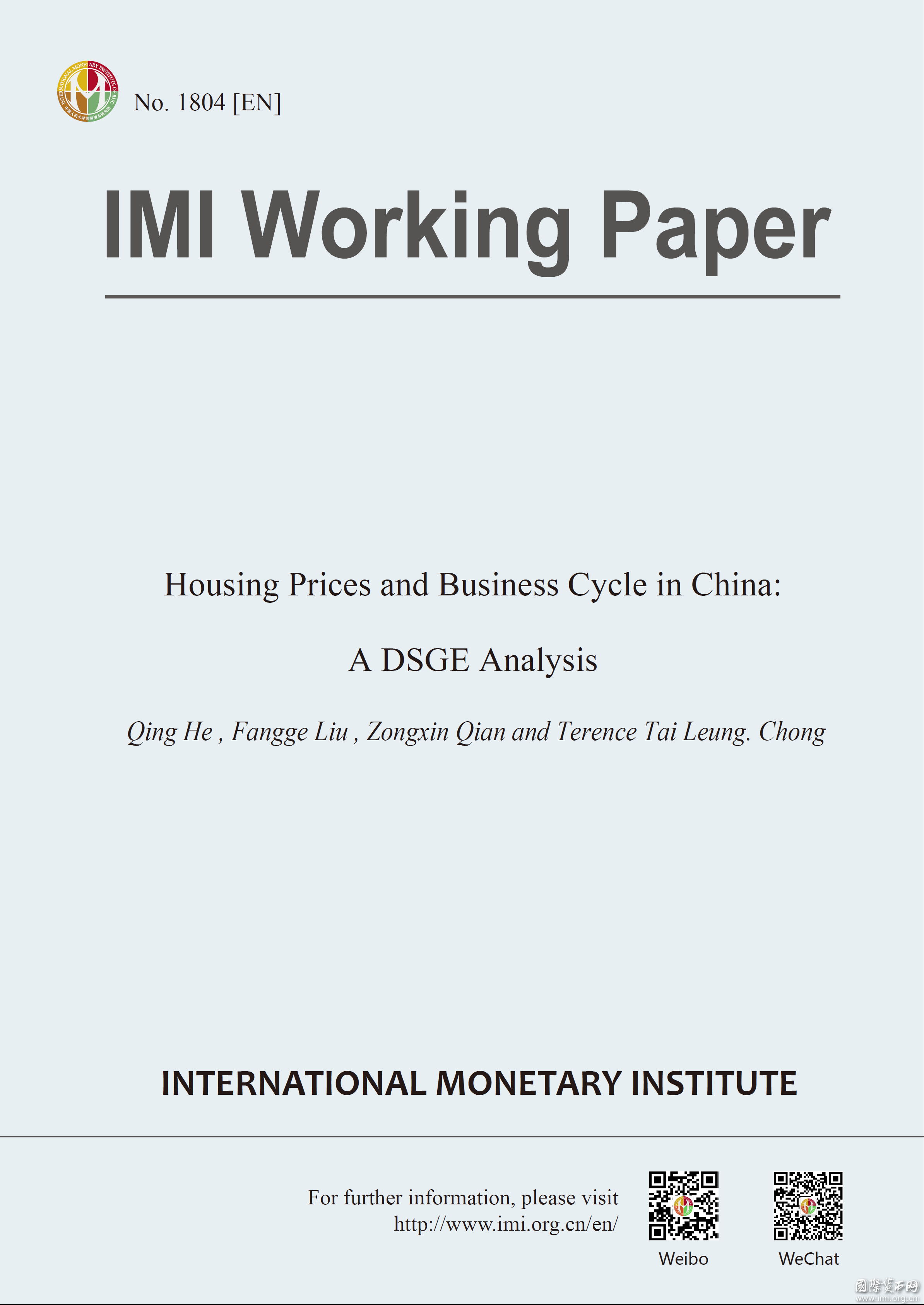【Abstract】
We investigate the interaction between the real estate market and the business cycle volatility in China over the past two decades. A Bayesian dynamic stochastic general equilibrium (DSGE) model with nominal stickiness and collateral constraints is estimated. It is found that shocks from the housing market (e.g., loan-to-value ratio and housing preference shocks) affect the macroeconomy of China. The interactive feedback between credit constraints and housing prices amplifies the impact of various economic shocks, which plays an important role in explaining the business cycle volatility in China.
【Keywords】Housing prices; Business cycle; DSGE; China
【Authors】
Qing He, School of Finance & China Financial Policy Research Center, Renmin University of China
Fangge Liu, Academic Journal Press, Renmin University of China
Zongxin Qian, School of Finance, Renmin University of China
Terence Tai Leung. Chong, Department of Economics and Lau Chor Tak Institute of Global Economics and Finance, The Chinese University of Hong Kong and Department of International Economics and Trade, Nanjing University
